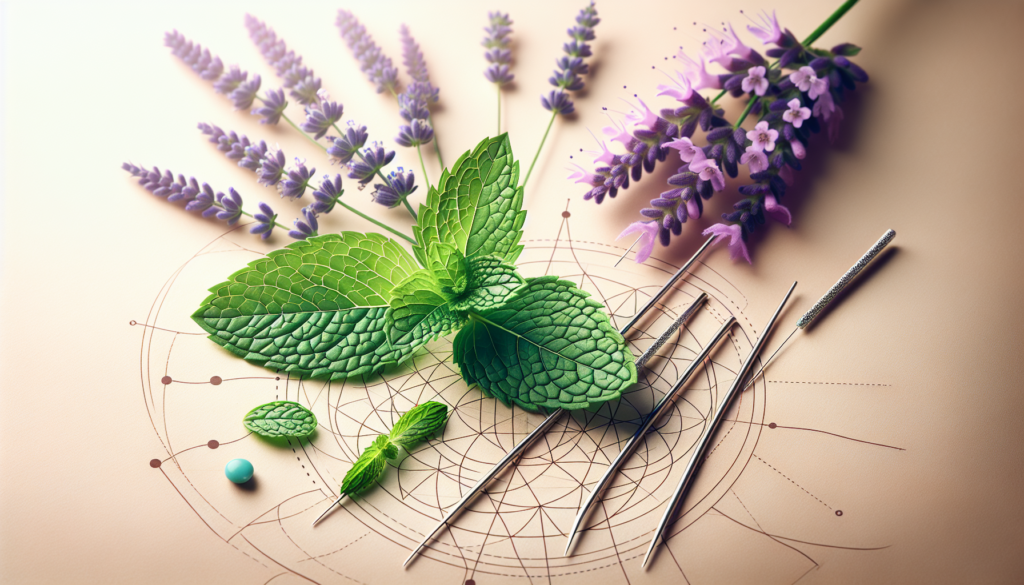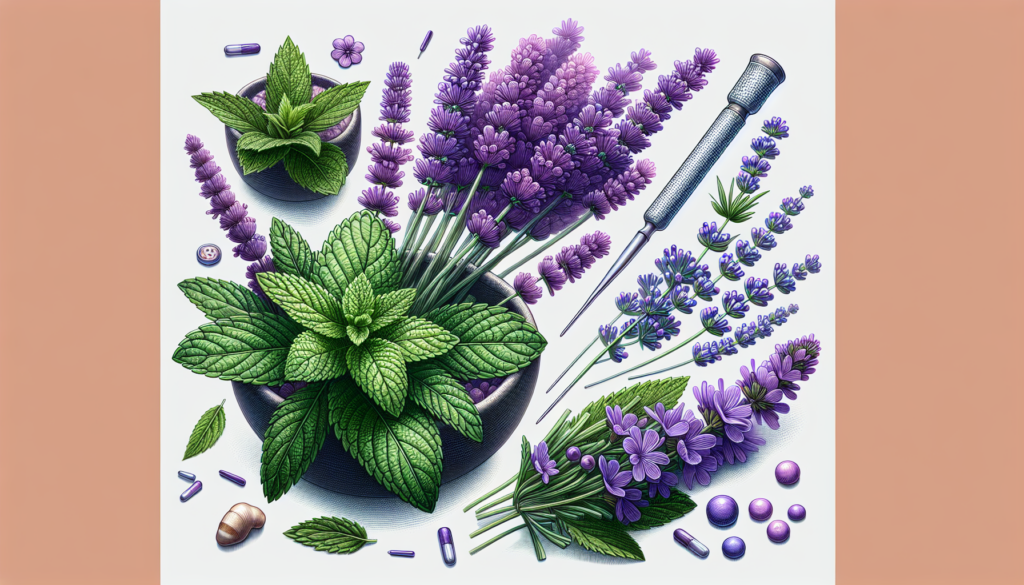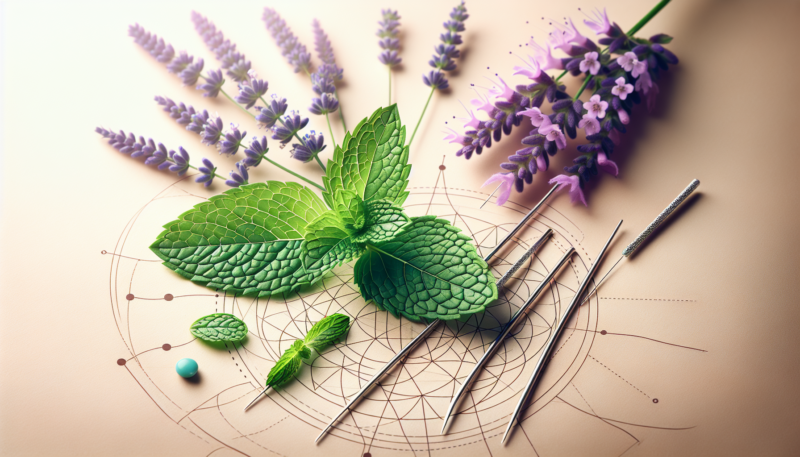Hey there! Are you tired of constantly relying on painkillers to relieve those pesky headaches? Well, look no further! In this article, we’ll explore some fantastic natural remedies that can help you bid farewell to those throbbing head pains. From soothing essential oils to tension-easing exercises, we’ve got you covered. Say goodbye to your headache woes and hello to a more holistic approach towards finding relief. So, let’s jump right in and discover some amazing natural cures for those bothersome headaches!

Introduction
If you suffer from frequent headaches, you know just how much they can interfere with your daily life. Whether it’s a tension headache, a sinus headache, or even a migraine, the pain and discomfort can be debilitating. While over-the-counter pain relievers can provide temporary relief, they often come with side effects and may not be a suitable long-term solution. Thankfully, there are natural remedies available that can help alleviate headache symptoms and promote overall well-being. In this article, we will explore a variety of lifestyle changes, dietary remedies, essential oils, acupressure and massage techniques, hot and cold therapy, relaxation techniques, herbal remedies, and alternative therapies that can offer relief from headaches.
Lifestyle Changes
Maintaining a Regular Sleep Schedule
One lifestyle change that can have a significant impact on reducing headaches is maintaining a regular sleep schedule. Ensuring you get enough sleep each night and establishing a consistent sleep routine can help regulate your body’s internal clock and promote a healthier sleep-wake cycle. Aim for 7-9 hours of quality sleep each night, and try to go to bed and wake up at the same time every day, even on weekends. By prioritizing sleep, you can reduce the frequency and severity of your headaches.
Managing Stress Levels
Stress is a common trigger for headaches, so finding effective ways to manage and reduce stress can be highly beneficial. Consider incorporating stress-reducing activities into your daily routine, such as yoga, mindfulness meditation, deep breathing exercises, or engaging in hobbies that bring you joy and relaxation. Taking breaks throughout the day to practice these stress-relieving techniques can help prevent headaches and promote a more balanced lifestyle.
Limiting Caffeine Intake
While caffeine can provide a temporary energy boost and may help alleviate headaches for some people, excessive intake can actually trigger or worsen headaches in others. It’s important to find the right balance for your body. Consider reducing your caffeine intake if you notice a correlation between your consumption and headache occurrence. Gradually decrease your caffeine intake to avoid withdrawal symptoms such as caffeine headaches. Opt for healthier alternatives like herbal teas or decaffeinated beverages.
Regular Exercise
Engaging in regular physical exercise is not only beneficial for your overall health but can also help reduce the frequency and intensity of headaches. Exercise promotes the release of endorphins, which are natural painkillers and mood enhancers. Aim for at least 30 minutes of moderate-intensity exercise on most days of the week, such as brisk walking, cycling, swimming, or yoga. Remember to listen to your body and choose activities that you enjoy and that are suitable for your fitness level.
Avoiding Trigger Foods
Certain foods and ingredients are known to trigger headaches in some individuals. Common culprits include alcohol, chocolate, aged cheeses, processed meats containing nitrates, artificial sweeteners, and foods high in sodium or monosodium glutamate (MSG). It may be helpful to keep a food diary to identify patterns between your diet and headache occurrence. By avoiding or minimizing the consumption of these trigger foods, you can potentially prevent or reduce the frequency of your headaches.
Dietary Remedies
Hydration
Dehydration can often be a leading cause of headaches. Ensuring you are adequately hydrated throughout the day can help prevent or alleviate headache symptoms. Aim to drink at least 8 glasses of water each day, and more if you engage in physical activity or are in a hot climate. Consider using a reusable water bottle as a reminder to keep sipping water throughout the day.
Herbal Teas
Certain herbal teas have been found to have soothing effects on headaches. Chamomile tea, known for its calming properties, can help relax tense muscles and reduce the severity of headaches. Peppermint tea, with its natural menthol content, has a cooling effect and can help relieve tension headaches. Ginger tea, a natural anti-inflammatory, may help alleviate headaches caused by inflammation. Experiment with different herbal teas to find the ones that work best for you.
Magnesium-Rich Foods
Magnesium deficiency has been linked to an increased susceptibility to headaches. Incorporating magnesium-rich foods into your diet can help prevent or reduce the frequency of headaches. Foods such as leafy green vegetables, nuts and seeds, whole grains, and legumes are excellent sources of magnesium. Consider adding these foods to your meals regularly to ensure an adequate magnesium intake.
Vitamin B2 (Riboflavin)
Vitamin B2, also known as riboflavin, has shown promise in reducing the frequency and duration of migraines. Foods rich in vitamin B2 include dairy products, eggs, lean meats, leafy green vegetables, and almonds. If your diet does not provide sufficient riboflavin, you may consider talking to your healthcare provider about the potential benefits of taking a vitamin B2 supplement.
Omega-3 Fatty Acids
Omega-3 fatty acids, found in fish (such as salmon and sardines), flaxseeds, and walnuts, have anti-inflammatory properties and may help reduce headache intensity and duration. Consider incorporating these foods into your diet or discussing the option of omega-3 supplements with your healthcare provider.
Essential Oils
Lavender Oil
Lavender oil is well-known for its calming and relaxing properties. Inhaling lavender oil or applying it topically to your temples and neck can help alleviate tension headaches and promote a sense of calm. You can also add a few drops of lavender oil to a diffuser or warm bath to create a soothing atmosphere.
Peppermint Oil
Peppermint oil has a cooling effect on the skin and can provide relief from tension headaches. Apply a few drops of diluted peppermint oil to your temples, forehead, or the back of your neck and gently massage the area. The menthol in peppermint oil can help relax muscles and reduce pain.
Eucalyptus Oil
Eucalyptus oil has analgesic and anti-inflammatory properties, making it an excellent natural remedy for headaches. Dilute a few drops of eucalyptus oil with a carrier oil such as coconut or almond oil, and massage it onto your temples, neck, or chest. Inhaling the aroma of eucalyptus oil can also help clear nasal congestion, making it beneficial for sinus headaches.
Rosemary Oil
Rosemary oil has been traditionally used to relieve headaches and improve circulation. Massage a few drops of diluted rosemary oil onto your temples, forehead, or the back of your neck to help alleviate tension and promote relaxation. The invigorating scent of rosemary oil can also help improve focus and mental clarity.

Acupressure and Massage
Pressure Points
Acupressure involves applying pressure to specific points on the body to relieve pain and tension. One commonly used pressure point for headaches is the “Third Eye” point, located between your eyebrows, in the indentation where the bridge of your nose meets your forehead. Gently press and massage this point using your thumb or index finger for several minutes to help alleviate headache symptoms.
Scalp Massage
Massaging your scalp can help relax tense muscles and improve blood flow, providing relief from headaches. Use your fingertips to gently massage your scalp in circular motions, moving from the front of your head to the back. You can also try using a handheld scalp massager for added relaxation and stimulation.
Neck and Shoulder Massage
Tension headaches often stem from tightness in the neck and shoulder muscles. Massaging these areas can help relieve muscle tension and alleviate headache symptoms. Use your hands or a massage tool to apply gentle pressure and knead the muscles in your neck and shoulders. Consider incorporating regular neck and shoulder massages into your self-care routine to prevent headaches.
Hot and Cold Therapy
Hot Compress
Applying heat to the affected area can help relax tight muscles and increase blood circulation, providing relief from headaches. Soak a washcloth in warm water, wring out the excess, and apply it to your forehead, temples, or the back of your neck. You can also use a hot water bottle or a heating pad for longer-lasting heat therapy.
Cold Compress
Cold therapy can help numb the pain and reduce inflammation associated with headaches. Wrap a few ice cubes or a bag of frozen vegetables in a towel and apply it to the painful area for 15 minutes at a time. Alternatively, you can use a cold pack or a gel-filled eye mask specifically designed for cold therapy.
Hot Shower or Bath
Taking a hot shower or bath can provide overall relaxation, relieve muscle tension, and help reduce headache symptoms. The warm water can promote circulation and ease tension throughout the body. Consider adding a few drops of your preferred essential oils, such as lavender or eucalyptus, to enhance the therapeutic effect.
Relaxation Techniques
Deep Breathing Exercises
Deep breathing exercises are a simple yet effective relaxation technique that can be done anywhere, anytime. Find a comfortable position and close your eyes. Take slow, deep breaths in through your nose, allowing your abdomen to rise, and exhale slowly through your mouth, letting go of any tension. Focus on your breath and let go of any racing thoughts. Deep breathing helps promote relaxation, reduce stress, and alleviate headache symptoms.
Meditation
Meditation has been practiced for thousands of years and is known to promote relaxation and mental clarity. Find a quiet, comfortable space and sit in a relaxed position. Close your eyes and shift your focus to your breath, a mantra, or a calming visualization. Allow your thoughts to come and go without judgment. Regular meditation can help reduce stress, improve focus, and decrease the frequency of headaches.
Yoga
Yoga combines physical postures, breath control, and meditation to promote overall well-being. Certain yoga poses can help relieve muscle tension, improve circulation, and reduce stress, making it a beneficial practice for headache relief. Consider incorporating gentle yoga sequences or specific poses like child’s pose, forward fold, or seated twists into your daily routine.
Progressive Muscle Relaxation
Progressive muscle relaxation involves tensing and then relaxing each muscle group in your body, starting from your toes and working your way up to your head. This technique helps release tension and promotes a deep state of relaxation. Find a quiet space, lie down comfortably, and focus on tensing each muscle group for a few seconds before releasing the tension. Repeat this process throughout your body, progressively relaxing each muscle group.
Herbal Remedies
Feverfew
Feverfew is an herb commonly used to prevent and treat migraines. It contains compounds believed to reduce inflammation and inhibit the release of substances that cause blood vessels to dilate. Feverfew can be consumed as a tea, taken in capsule form, or used as a tincture. Consult with a healthcare professional for proper dosage and usage instructions.
Butterbur
Butterbur is another herbal remedy that has shown promise in relieving migraines. It has anti-inflammatory properties and may help reduce the frequency and severity of migraine attacks. It is available in extract or capsule form, but it’s important to choose a brand that ensures the removal of toxic substances naturally present in butterbur. Consult with a healthcare professional before using butterbur as a preventative measure.
Ginger
Ginger has long been used as a natural remedy for headaches and migraines due to its anti-inflammatory properties. You can consume ginger in various forms, such as freshly grated in hot water or added to your meals and beverages. Ginger tea or ginger capsules are also available and can provide relief from headache symptoms.
Willow Bark
Willow bark has been used for centuries as a natural pain reliever. It contains a compound called salicin, which is similar to the active ingredient in aspirin. Willow bark can be consumed as a tea or taken in capsule form. As with any herbal remedy, it’s important to consult with a healthcare professional before using willow bark, especially if you have any underlying health conditions or if you are taking other medications.
Alternative Therapies
Acupuncture
Acupuncture is a traditional Chinese medicine practice that involves inserting thin needles into specific points on the body. It is believed to stimulate energy flow and restore balance, promoting overall health and well-being. Acupuncture has been found to be effective in reducing the frequency and intensity of headaches. Consult with a licensed acupuncturist to explore this natural therapy.
Chiropractic Care
Chiropractic care focuses on the manipulation of the spine and musculoskeletal system to treat various health conditions, including headaches. Misaligned vertebrae and muscle tension can contribute to headaches, and chiropractic adjustments aim to restore proper alignment and alleviate pain. Consult with a licensed chiropractor to determine if chiropractic care may be beneficial for your headaches.
Homeopathy
Homeopathy is a holistic approach to healthcare that uses highly diluted substances to stimulate the body’s natural healing process. Homeopathic remedies specific to headaches, such as Belladonna or Natrum muriaticum, may be recommended by a homeopathic practitioner based on your individual symptoms and constitution. It’s crucial to consult with a trained homeopath for personalized advice and treatment.
Conclusion
Headaches can be a real pain, but natural remedies offer a gentle and holistic approach to finding relief. By incorporating lifestyle changes such as maintaining a regular sleep schedule, managing stress levels, and avoiding trigger foods, you can reduce the occurrence and severity of headaches. Dietary remedies, such as staying hydrated, consuming magnesium-rich foods, and incorporating omega-3 fatty acids, can also play a significant role in preventing headaches. Essential oils, acupressure and massage techniques, hot and cold therapy, and relaxation techniques provide additional options for natural headache relief. Herbal remedies and alternative therapies like acupuncture, chiropractic care, and homeopathy offer alternative avenues for finding relief. Remember, it’s important to consult with healthcare professionals before starting any new remedy or treatment to ensure it’s safe and suitable for your individual needs. By exploring these natural remedies, you can take control of your headaches and live a more pain-free and fulfilling life.
